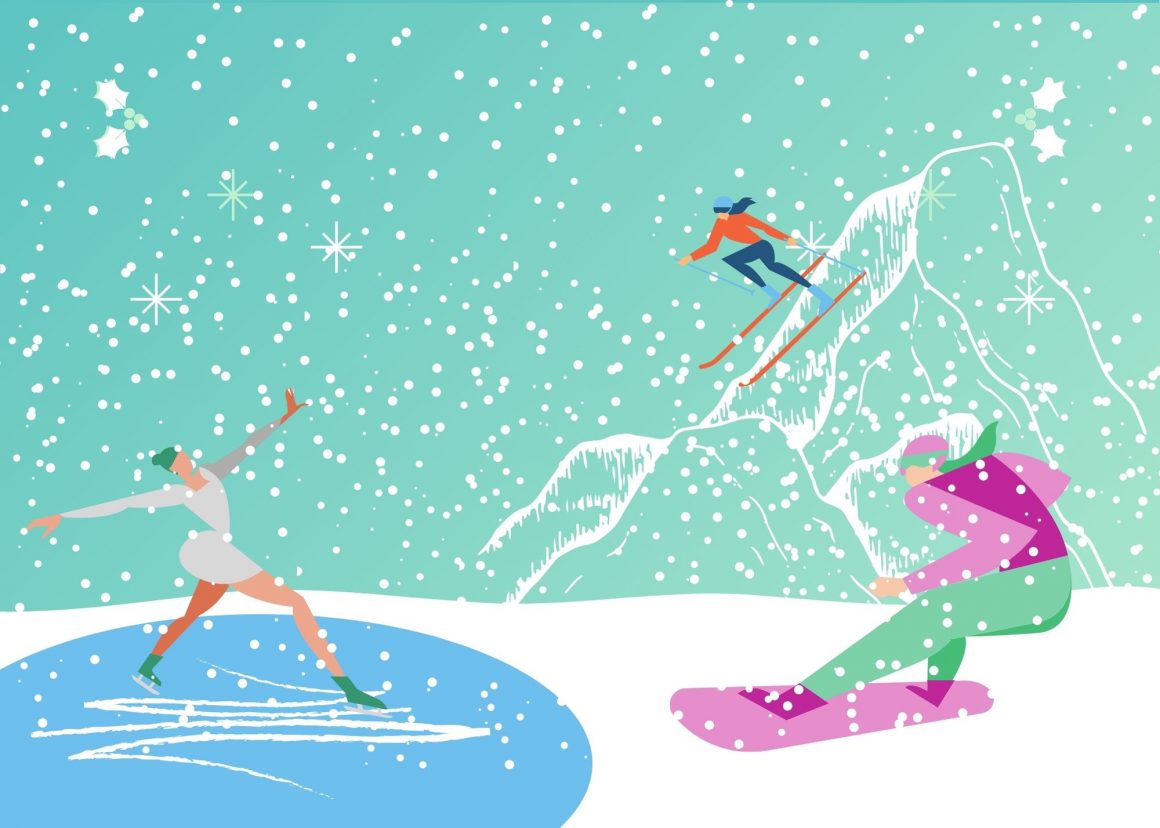
International University Sports Federation Winter Universiade cancelled for 2022
By Rachneet Randhawa, December 28 2021—
The University of Calgary was originally set to send five delegates to the 2021 International University Sports Federation (FISU) Winter Universiade to Lucerne, Switzerland, for the 10 day global sports competition originally taking place from Jan. 21–31, 2022. This is the largest international winter multi-sport event for student-athletes. The opening ceremonies were to be held on Dec. 11 at the Europlatz after a long delay of being rescheduled from early 2021.
However, as this story developed, FISU 2022 was cancelled in light of the recently emerging COVID-19 Omicron variant. The Gauntlet sat down for an interview with Director of Dinos Athletics at the University of Calgary, Ben Matchett, to learn more.
The past couple of years have been the longest off-season in U of C and Dino’s athletics history, and the transition back to a regular varsity season was difficult.
“It’s been a really difficult time for all of our student-athletes and coaches the same way that it’s been a difficult time for everyone since this all hit in March of 2020,” said Matchett. “Our athletes and coaches showed tremendous resilience in being able to train to the extent that they were allowed to by the restrictions over the cancelled season in 2021. And I know that there was a significant amount of pent-up energy and enthusiasm to be able to come back and get back to competition this past fall.”
This international sporting event is held every two years and is officially being renamed to be known as the World University Games. It is essentially an Olympic-style competition for university students. You must be under the age of 25 to compete, and must be a full-time university student or have graduated within the last year to be eligible to compete at these events.
FISU is the second-largest multi-sport winter event in the world behind the Winter Olympics.
“It’s a really unique opportunity for our student-athletes to gain some international competition experience, to have a fantastic experience in a different part of the world and represent their country,” said Matchett.
The standard types of sports for competition this year would have included ice hockey, curling, alpine skiing, cross country skiing, snowboarding, biathlon and short track speed skating. How are the games specifically chosen? Every host country is a part of a bidding process. Certain sports are required at each winter and summer games in which some are optional sports chosen by the country that are bidding based on the popularity of the sports in that country.
Matchett was also nominated to be Canada’s Head of Mission or Delegation.
“I’m very excited to have the opportunity to lead the Canadian team there, it’s been a goal of mine for quite a while. So it’s really exciting to finally be this close to realizing it,” said Matchett.
Regardless, it was still a no-go.
“The event was cancelled on Monday, Nov. 29 as a result of the Swiss government’s reaction to the Omicron variant,” said Matchett. “Switzerland instituted a 10-day quarantine for anyone travelling from a country with a confirmed case of Omicron — at the time that would have impacted the United Kingdom, Czech Republic, Belgium and the Netherlands and since Monday, Canada and several other countries have been added to that list. As a result, based on the timing of the announcement, there was no way the participants would be able to arrive in time for the event to continue as scheduled, so it was unfortunately cancelled outright.”
Prior to the global event being cancelled, a total of five athletes from the U of C were nominated and selected to officially represent Canada in Switzerland. The three student-athletes included Ryan Graeme and Ryan Gagnon from the men’s hockey team and Taras Dets from the alpine ski club.
As for how the athletes were approaching training for the competition and all game plan strategies, they hoped to try out before the event was cancelled, Matchett said, for the sports they intended to compete in are at a really high level.
For example, Alpine Skiing is more individualized and the original goal was for Dets and the rest of the Canadian team to get as many training runs while abroad. Because every course around the world is slightly different with subtle nuances, the best they could have done is give as many tries on the competition course given time constraints. For hockey, the Canadian team had only a couple of days of practice before playing their first game.
“So that’s one thing that I know they were looking at in this player selection process is to try to put together as well-rounded a team as they can, knowing it’s a very short kind of intense tournament that they have to compete in,” said Matchett.
The Winter Universiade happens every two years and the next one is set for Lake Placid, NY in January 2023. Unfortunately, the Lucerne games will not be further rescheduled.
“We are certainly disappointed for the student-athletes and staff who had worked so hard to earn their place at the event,” said Matchett. “We also send our sympathies to the organizing committee in Switzerland, which had spent more than seven years bidding and preparing to host this event and were only a week away from welcoming the world’s best student-athletes.”
Although FISU 2021 was cancelled, Matchett remains resilient and has hopes for the rest of the varsity season at the U of C, and the promise Dinos athletes bring with their tenacity. The winter edition of the games have now been rescheduled for January 2023. For those interested in learning more check out the Dinos website and updates on FISU 2023 online.
